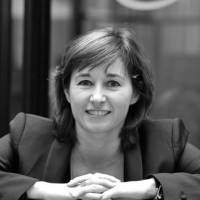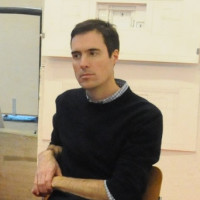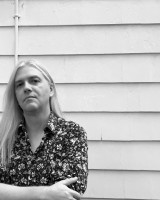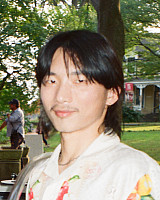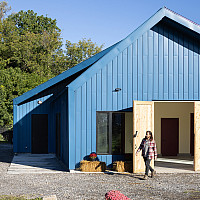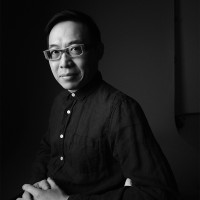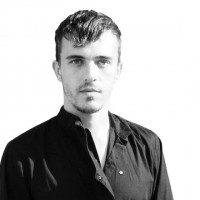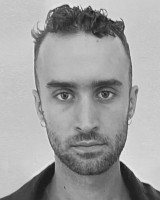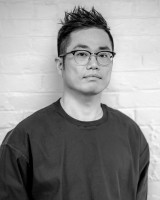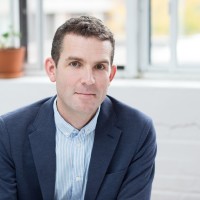Studios in design and media, lecture courses and seminars in theory and history, and courses in structures and technology during the first four semesters of the MArch 110 credit curriculum constitute the “core” of the program. The final three semesters offer distinct experiences. In the fifth semester, which occurs in summer, students will either study abroad or at the University’s Fisher Center in New York City. The focus of the sixth semester is the Integrated Studio which synthesizes knowledge garnered in the design, technology, and history/theory sequences. The program culminates in a thesis project defined and developed by the student in tandem with faculty advisors. Professional and history electives allow students to study specific topics in seminars and lecture courses.
For students who have entered our program Fall 2022 or earlier, this curriculum chart will help you visualize the course breakdown by semester. For students enrolled Fall 2023 or later, please refer to this curriculum chart. Please go here to find individual course descriptions.
Design and media
Each of the core studios is team-taught by two faculty members with complementary expertise and approaches. They conduct the studio as a site of debate and exchange. Students contribute actively to the conversations and criticism primarily through their design work but also in seminar discussions and group critiques. This is supplemented with collaborations, workshops, and technical and speculative exercises. Studio work is coordinated with other core courses: design is always pursued as inseparable from other aspects of the discipline and the complexities of the broader culture.
Two courses introduce students to the use and implications of manual and digital media as generative and representational tools. Students learn fundamental skills and develop innovative applications of diverse drawing techniques, photography and imaging, modeling, and advanced digital design and fabrication using the school’s laser cutters, 3D printers, and CNC mills. Students also investigate time-based media such as video and animation. Assignments and projects in these courses are coordinated closely with ongoing work in the design studio as contemporary practice benefits from the exploration of the productive capacities of diverse media. Students are exposed to a broad range of technical and communication skills, from freehand sketching to advanced modes of digital design, modeling, simulation, and fabrication.
History and Theory
Four seminars introduce fundamental issues and readings in history and theory. Equal parts analysis, speculation, research, and critique, these seminars develop students’ knowledge and intellectual skills. Through discussions and presentations students engage the texts, buildings, and projects that are fundamental to graduate studies at Syracuse Architecture. A significant aim is to identify and initiate the research interests that students will pursue throughout their studies. As the counterpart to the ongoing discourse in the design studio, the history and theory seminars provide opportunities for extended treatment of timely topics.
Technology and Structures
Five courses are devoted to the study of the technical and structural aspects of building design. They culminate in the Advanced Building Systems course, which is an in-depth exploration of the relationship between an acclaimed building’s form and its technical components. Using the extensive construction documents archived at the school, students analyze the building’s systems of assembly and design logics. Students become aware of conservation strategies and concepts of sustainability as fundamental contemporary issues in architecture. Major emphasis is placed on understanding state-of-the-art building structures and major innovations in enclosure, mechanical, lighting, and interior systems.
Visiting Critic Studios
In the fourth semester students have the opportunity to participate in the School’s visiting critic studio program. Students work under the close mentoring of outstanding architects and scholars from around the world who visit Syracuse’s home campus. They explore innovative theoretical approaches and design methods. Recent critics have included internationally known architects such as Joshua Prince-Ramus, Gregg Pasquarelli, Brad Cloepfil, Robin Osler, Mitchell Joachim, Craig Scott, Craig Konyk, Jonathan Marvel, Jared Della Valle, Andy Bernheimer, A.J. Pires, Audrey Matlock, and Ammar Eloueini.
study in in New York City and abroad
Established in January 2009, the New York City program located at Syracuse University’s Fisher Center offers opportunity to study in one of the most architecturally rich and culturally vibrant cities in the world. The curriculum focuses on the city’s history, urban morphology, planning, and real estate development, as well as urban theory. It draws on Syracuse Architecture faculty and on New York City-based critics that have included Marc Tsurumaki, Joshua Prince-Ramus, Gregg Pasquarelli, Craig Dykers, Lyn Rice, Jing Liu, and Richard Gluckman. Students have also the opportunity to study in specially designed overseas programs.
Graduate architectural Research Seminar
Graduate students participate in the Graduate Architectural Research Seminar, an advanced two-semester course that tackles opportune themes in contemporary architectural discourse. These seminars result in student-led discussion fora and student-curated exhibitions and publications. During the academic year 2013–2014, the graduate program organized “Speculations on the Real,” a multi-semester project taking as its central theme the contemporary philosophical concept of speculative realism. Several workshops led by practitioners associated with speculative realism took place throughout the year. Workshop leaders included Jason Payne from SCI-Arc, David Ruy from the Pratt Institute, Michael Young from the Cooper Union, and David Freeland and Brennan Buck, respectively from UCLA and Yale’s School of Architecture. During academic year 2014–2015, the seminar focused on the disciplinary core of architecture, in the wake of that year’s Venice Biennale entitled “Fundamentals.”
Thesis
At Syracuse Architecture, the completion of a thesis is required for award of the M.Arch degree. Thesis involves the definition and development of a rigorously constructed project, determined by the student, which is explored through research and design over two semesters. It is also serves to demonstrate a student’s ability to synthesize and apply multiple areas of the school’s curriculum. The thesis year is an opportunity for students to focus on issues that they are passionate about, that nourish them intellectually, and that situate them to make unique contributions to the discipline. The Thesis Awards Jury occurs at the end of the academic year. It brings leading practitioners, educators, and critics from across the United States and abroad to review a selection of exceptional projects. From this pool, projects are selected for the Britton Awards and Dean’s Citations that recognize outstanding achievement.
